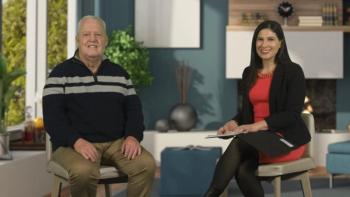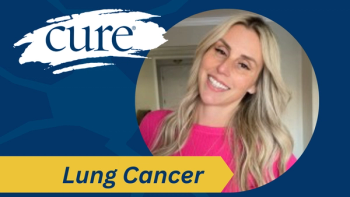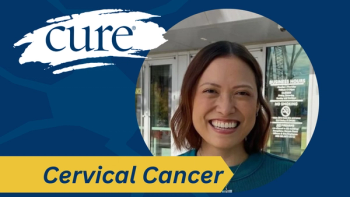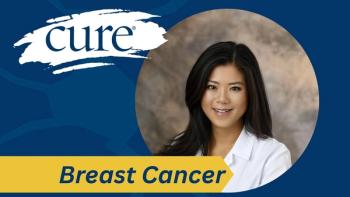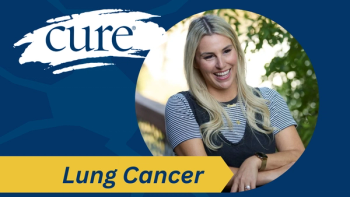
Bringing Awareness to Depression and Cancer
Before receiving my colorectal cancer diagnosis, I had experienced cancer. However, my depression felt different during treatment.
These are some facts from the National Institute of Mental Health about depression and cancer. It's known that one in four people who have or had cancer also experience depression. It can happen at any point during your cancer journey. For some people, depression starts soon after diagnosis. For other people, it can start in the weeks or even months after cancer treatment ends. There is also a 50/50 split between men and women who may be facing depression after a cancer diagnosis. It is also known that about 60% of the people who have depression don’t seek professional support, in part because of the stigma of depression.
If you had depression in the past, you are more likely to experience it again after your cancer diagnosis. For me, it was a mix of all of the above and something that was very unexpected but over the years, I have gained a better understanding of what may have caused it. This is more of a personal reflection because depression can hit people differently and the treatment options for it can vary.
I remember when I was diagnosed with stage 3 colorectal cancer six years ago, it was like I was a deer in the headlights. I had faced depression for different reasons before being diagnosed with cancer. During those times, I pretty much taught myself to gut through it on my own. Because of the stigma mentioned above, I just found ways to mask any of the emotional pain that I might have experienced in my life before cancer. One of the ways I masked my depression was through food. One of my favorite things I have always enjoyed doing would be cooking a good meal and sharing it, especially with family and friends.
Being someone who has struggled with obesity most of my adult life, I would use food as that device to seemingly recover from any depression I felt in the past. I would typically begin feeling guilty for using overeating as a way to overcome the depression I was feeling at that moment. Food for me was a way to find comfort and it didn’t help that I was a pretty good cook by most people’s standards.
To try to get past those moments of depression I would usually talk with a friend or get encouragement from my wife. I would then choose a healthy alternative to get me back on track, whether it was going to the gym to work out or just eating healthier. I found that the depression that came with cancer would hit differently, and I couldn’t find comfort in the one thing that always helped me get past it.
When I was first diagnosed with cancer I was known as the “good patient,” and I followed my doctor’s orders. I just gutted through my cancer surgery and recovered like a champ. I just stuck to the plan we had for me to survive cancer, and I still found food to be my source of comfort, but it wasn’t until I started chemotherapy that things went off the rails.
Two of the major side effects of chemotherapy were nausea and loss of appetite. I was given the anti-nausea drugs to combat some of the side effects but because of the loss of the sense of taste, I slowly lost the desire to eat. I no longer had the one thing that helped me battle my depression in the past because I found that food was no longer a comfort to me. I found that I had to force myself to eat because if I didn’t eat something before my daily doses of chemotherapy, the nausea would be much worse for me. The food that I seemingly enjoyed I couldn’t enjoy anymore because nothing tasted the same during chemotherapy treatments.
I used to think it was the chemotherapy and cancer that was causing my depression. I do believe it accounted for part of it, but I have learned it wasn’t the main factor for me. One day, I was sitting in my oncologist’s office waiting for his report before I went for my scheduled chemo treatment that day. When he entered the room, he quickly noticed I had lost a large amount of weight in a short period of time. I just wasn’t eating very well because the chemotherapy had taken that desire from me. When I ate, it became a burden and nothing tasted good to me. I forced myself to eat, which wasn’t something I was used to doing. He saw how sad and worried I was about my cancer, but he said my weight loss was starting to affect my blood counts. I remember him telling me that being treated for cancer wasn’t a weight loss plan. He encouraged me to eat regularly so as not to lower my blood count because if I couldn’t get treatment, I couldn’t beat cancer like we had planned. I had to stick to the game plan to beat my cancer.
On that day, my oncologist asked if a therapist could come into the room and visit me. Even though I felt embarrassed, I allowed her to visit that day and we started talking. I found that just talking about my feelings at that moment began to help me let go of the depression a bit but because of that stigma, we still had a lot of work to do.
I would continue to meet with my therapist regularly for a few months even after finishing treatments. We found that talk therapy was a great way to combat the depression I was feeling because of cancer. I also started working with a nutritionist to rebuild my relationship with food but that would take a while to rebuild even after treatments were finished. The key to battling depression was finding the right treatment plan or protocol which can only happen from a trained professional.
Today I am six years cancer-free but I still struggle with many of the aftereffects of cancer treatments including my relationship with food. I am lucky enough that because of organizations like Colontown.org and manuptocancer.org I have built a community of friends to support my mental health journey with cancer. Talk to your medical team to find the support you need in the battle against depression as it relates to your cancer diagnosis.
For more news on cancer updates, research and education, don’t forget to

